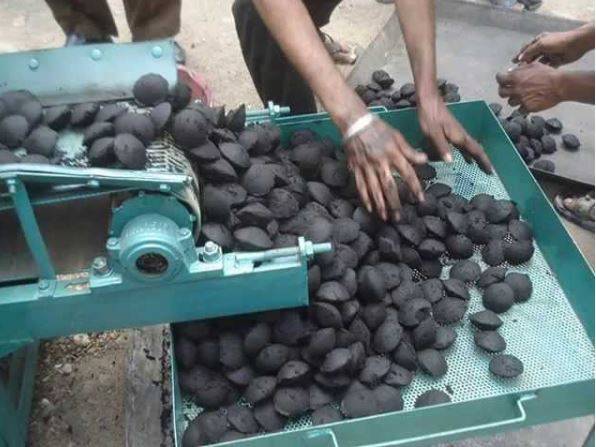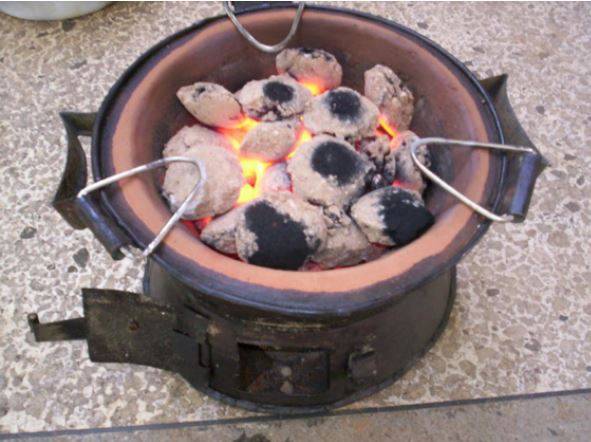From Chocolate Bars To Chocolate Briquettes: How A ‘Sweet Tooth’ Led To Some Serious ‘Energy Business’

When 21-year-old Mercy Wanjiru walked into a supermarket in 2016 to buy chocolate, she did not imagine that her life would be changed. Well, most people visit supermarkets mainly to shop, or at least to window shop but for mercy Wanjiru, one such visit led to a discovery of a great energy business idea.
Wanjiru says on a random walk along the supermarket’s corridor, she spotted a corner marked ‘charcoal’ which sparked her curiosity, well, who thought charcoal would be sold inside the supermarket?
“I wondered how a supermarket could sell charcoal…I mean it looked weird. To my amazement, I realized they were not your ordinary charcoal,” she said.

In a bid to quell her curiosity, She asked a supermarket attendant who explained that the type of charcoal was called briquettes – small compact blocks used as fuel.
Briquettes are made from recycled sawdust, wood shavings, waste papers, husks from nuts and cereals, grass, leaves, and charcoal dust, among other wastes. The mixture is then compressed using a briquette-making machine.

Due to their low levels of carbon emission, briquettes are more eco-friendly and more environment-friendly compared to charcoal or firewood.
“By the time I left the supermarket, I was resolute that I would abandon job hunting and venture into this business. It was a nagging urge and I was already strategizing by the time I reached home,” she said during an exclusive interview with Business Daily.
Wanjiru resorted to in-depth research on the business until she came across a community-based organization in Kiambu that was training self-help groups about briquettes.
She spared Sh 5,000 to join a one-day training which she says was sufficient and even inspired her to source Sh 200,000 as a start-up funding for the business which she later named Mwashime Creative Enterprise.
“I started with a sack of charcoal that I collected from a charcoal selling site in Kabati town. I had bought an Sh145 000 kiln to burn and mould the briquettes, “It was my breakthrough,” Ms Wanjiru explained.
Now, Ms Wanjiru makes a net profit of Sh 50,000 a month, she generates revenue mainly from hotels.
Briquettes are highly preferred because they don’t produce smoke and are cheaper than other sources of energy, the eco-friendly coal sells for Sh200 per 10 pieces.

They are in high demand mainly for domestic and industrial use in schools, colleges, hospitals, this has triggered rapid growth in the nascent industry.
For Wanjiru, who has trained in information technology, hospitality, and printing, she says that this is a breakthrough compared to the highest-ever earned salary of Sh 8,000 she got from her previous job.
“By 2025, I will be running a mid-sized cottage industry with a projected daily turnover of a million shillings and a monthly net profit of Sh10 million,”
“Sale of my products was helped by the fact that charcoal burning has been banned in forests. Also, the cost of briquettes is half that of charcoal,” the mother of two further divulged.
She also said that she is looking for Sh8 million to establish a small plant and she also plans to start offering training on briquette making.
Wanjiru is setting herself up for competition with other established firms in the green market including; Kunisafi, Ecomakaa solutions, Intertwine Enterprise, Lejan energy among many other startups.
Featured Image Courtesy:kuzabiashara.co.ke